
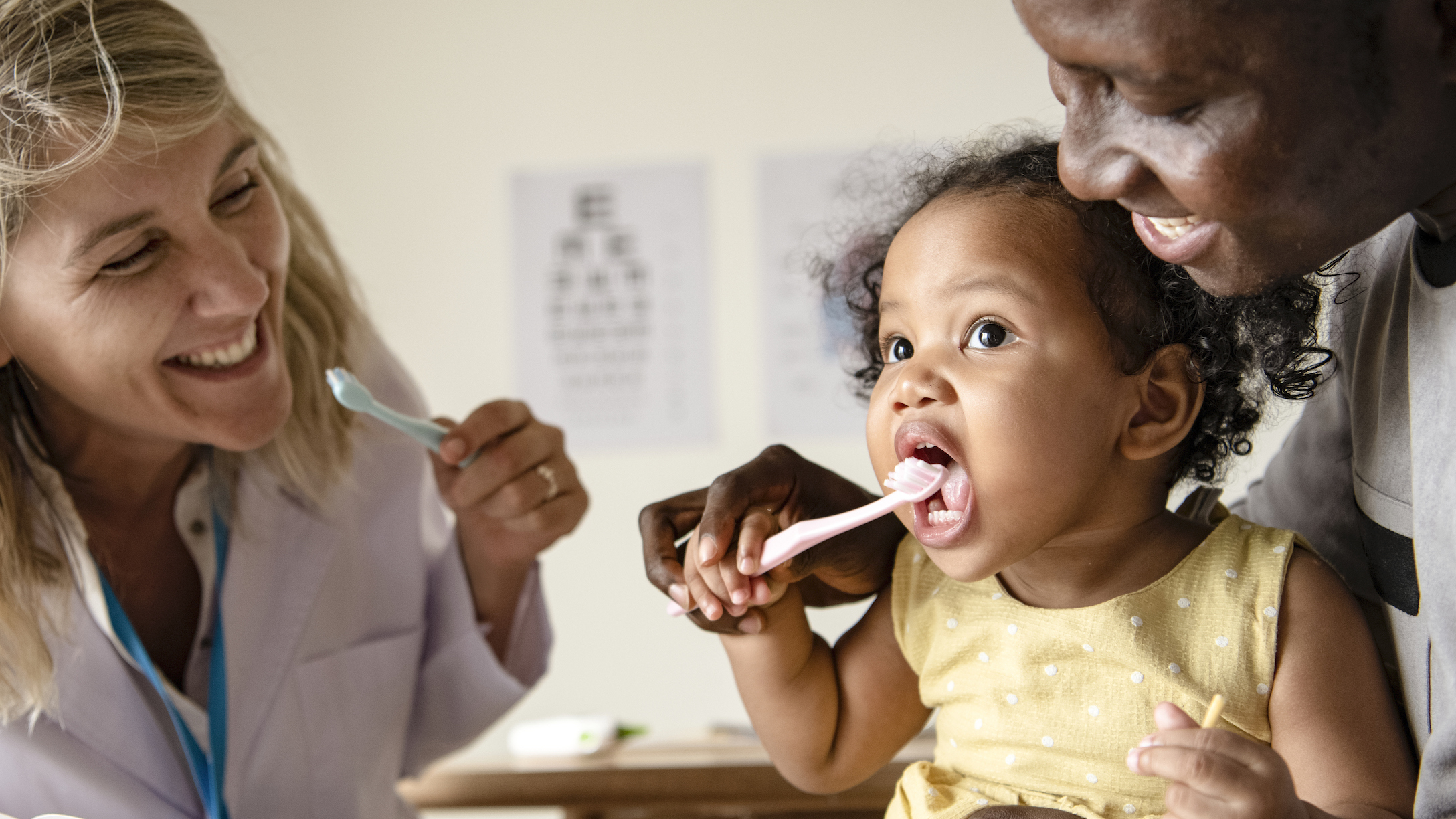
Brusha, Brusha, Brusha
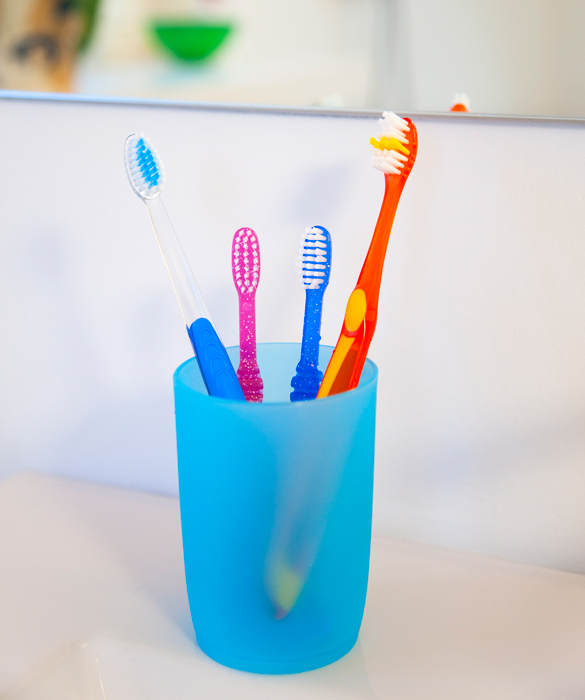
Tooth brushing and good oral hygiene don't have to be a daily battle that parents too often lose. In order to keep this from happening to you, we asked two pediatric dental experts for advice about getting kids to adopt a healthy oral care regimen. Here's what they had to say.
Make Sure Your Teeth Are Healthy
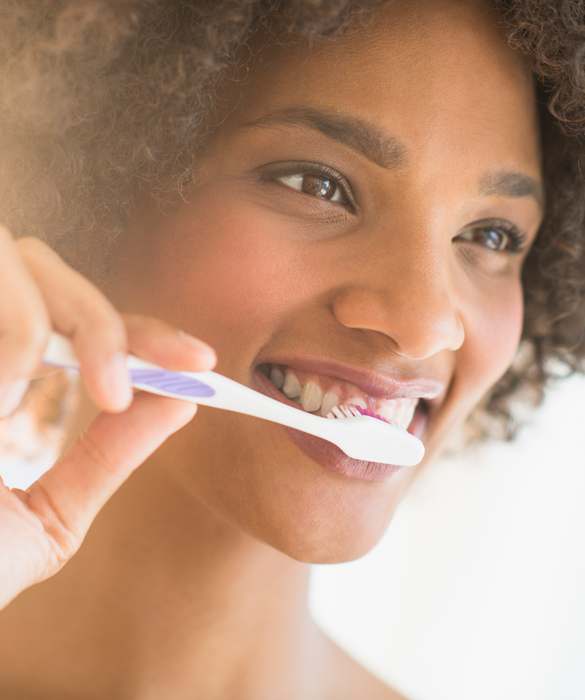
“The best thing to ensure good oral health of a baby is to ensure that mom’s oral health is good, too,” explains Dr. Dennis J. McTigue, a professor of pediatric dentistry at Ohio State University who’s also a spokesperson for the American Academy of Pediatric Dentistry. “We now know that the bacteria that cause tooth decay can be transmitted from moms (and dads) to the baby, for instance, when mom uses the same spoon to taste the baby’s food as she does to feed baby; it’s very easy to transfer bacteria from her mouth to the baby’s.” (Baby can only get it when germs from your mouth get into hers; she can’t get it from breast-feeding.)
Start Baby's Oral Health Regimen at Birth
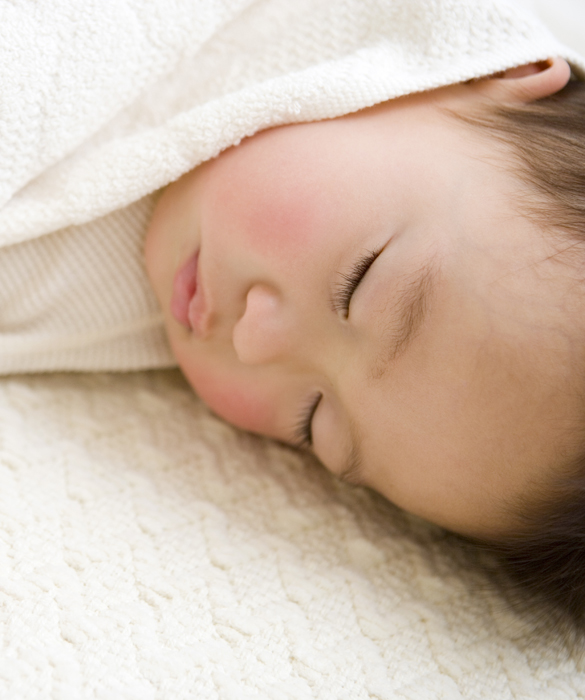
“Before the baby has teeth, he probably won’t have oral bacteria, which become established in colonies on the teeth,” McTigue explains. “But it’s still not a bad idea to use a washcloth to rub the gums. It gets baby in the habit of having something in her mouth”—so she won’t balk (as much) when she does get teeth.
RELATED: 10 Questions for a Pediatric Dentist
After First Tooth, it’s Time to Start Brushing
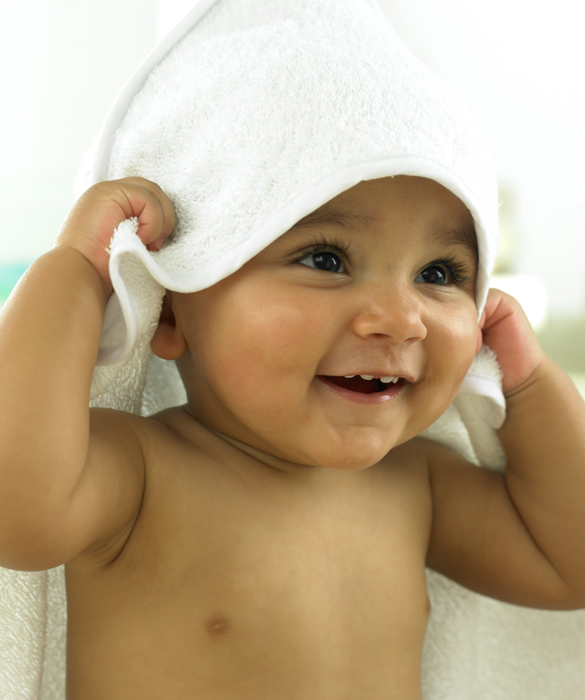
“Tooth brushing should start as soon as baby has a tooth,” McTigue says. “The best thing is to use a baby toothbrush, a small brush with very soft bristles.” Parents should brush the child’s teeth for two minutes, twice a day, he says. “Just scrub them. To try to teach children to use a certain stroke is hopeless,” as is trying to use the recommended circular motion on a squirming child.
Make Tooth-Brushing Fun
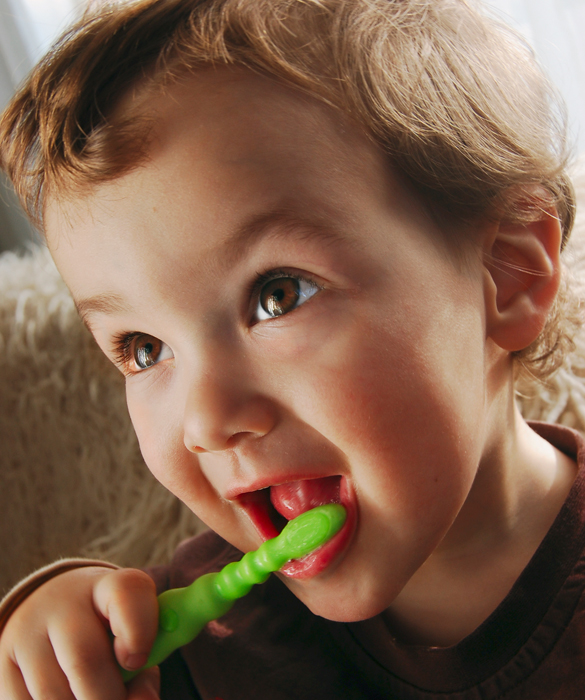
“Link nightly brushing to an activity they enjoy and look forward to, like reading a story before bedtime,” says Dr. Edward H. Moody Jr., a dentist in private practice in Morristown, Tenn., and a spokesperson for the American Academy of Pediatric Dentistry. Make it part of their routine: First we brush your teeth, then we read a book.
“The best tip I ever heard is to play a song that the kid loves on the iPod or another device.” McTigue says. “Usually songs last two-and-a-half to three minutes, and have the kid brush their teeth for the length of the song.”
Set up a Rewards Chart
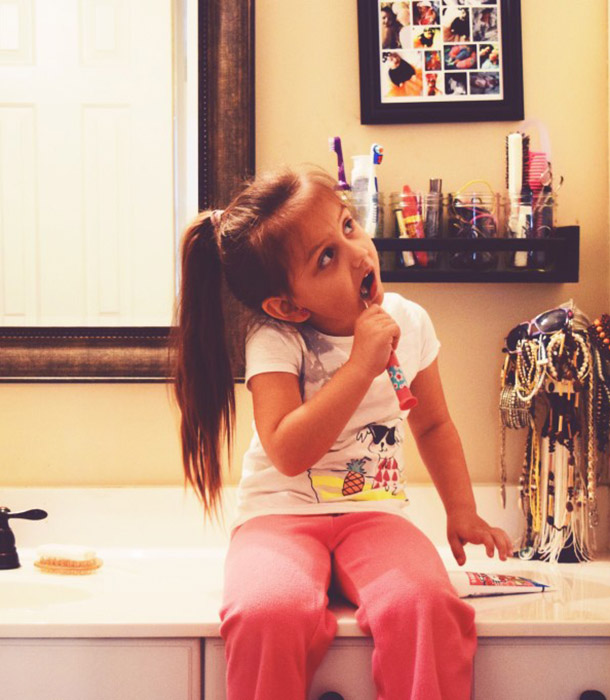
“Use a chart to track brushing and allow them to earn stickers or credits toward a particular toy or a trip to the movies,” says Moody.
RELATED: The Best TV for Tots
Parents Should Brush Child's Teeth Until 2nd or 3rd Grade
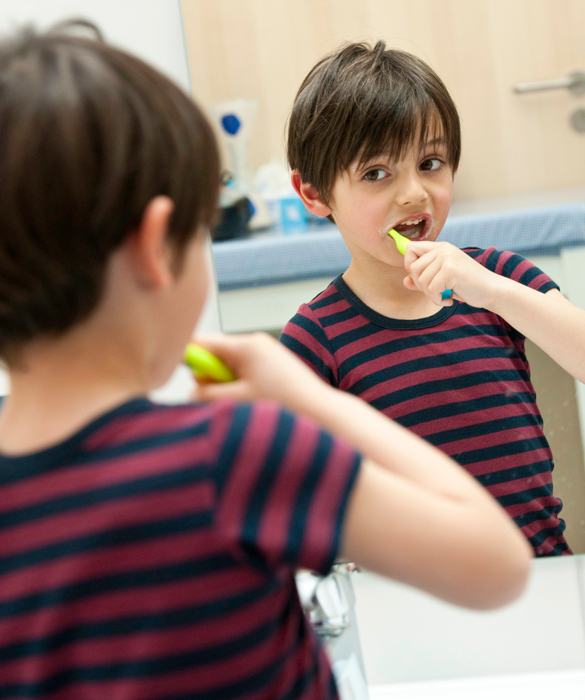
“You should brush your kids’ teeth until they’re 7 or 8,” says McTigue. “The reason is because otherwise they just take a couple of quick whacks with the brush, or just brush the front teeth.” In other words, they don’t do a thorough job of cleaning their teeth.
“The ages between 7 and early teens are tough ages,” he admits. Kids are too old to allow you to brush their teeth and too young to care much about their hygiene, as teens are. The best strategy is just to encourage them and monitor them as much as possible, he says.
Take Kids Shopping for Products
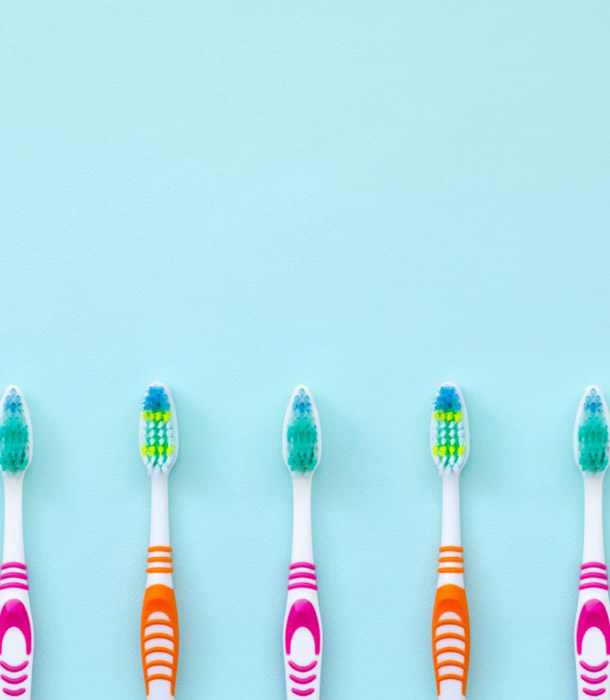
It’s the same concept as letting them shop for fruits and vegetables: “Let them pick their own toothbrush color and toothpaste flavor so that they feel involved,” says Moody. “Many of the newer battery-operated toothbrushes have built-in timers and light up or play music.” While manual toothbrushes work as well as battery-operated models, anything that encourages brushing is worthwhile.
Focus on Social Benefits
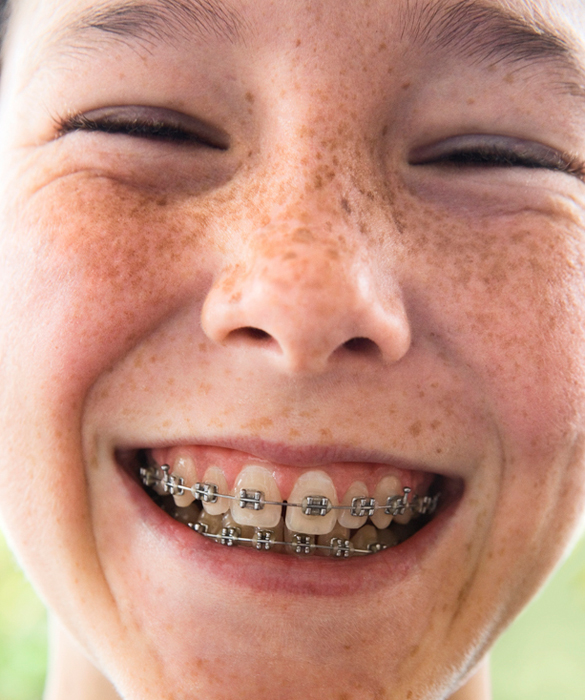
At this age, “they get really concerned about the social aspects of brushing and start caring about their appearance,” McTigue says. Encourage brushing by focusing on their breath or telling them their teeth could be whiter.
RELATED: Why I Love Going to the Dentist
Be a Good Role Model
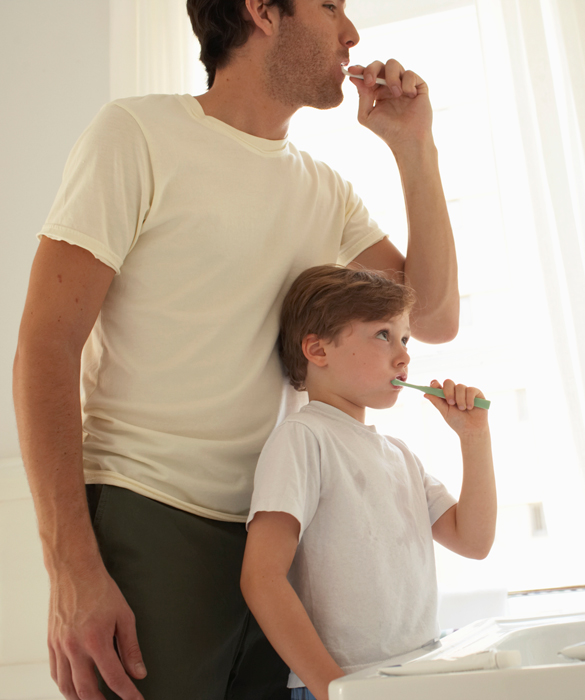
“If your child sees parents brushing their teeth morning and evening, that’s a good thing,” says McTigue.
Only Use Toothpaste if Necessary
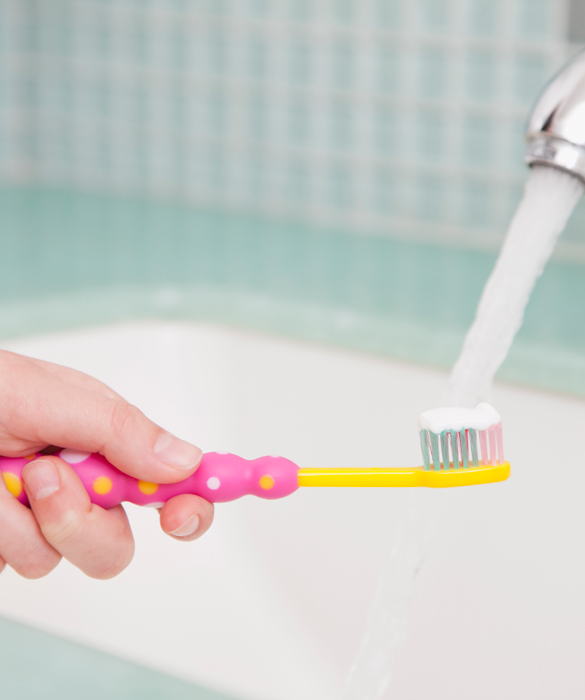
“It’s the brush that cleans the teeth,” McTigue explains. “Toothpaste is mostly important for the fluoride it contains. For the first couple of years, if a child is getting fluoride in their drinking water, she probably doesn’t need toothpaste.
If you do need toothpaste, “I recommend that parents first use a dry toothbrush to scrub all the surfaces of teeth.” This minimizes the mess of toothpaste splattering so you can really focus on cleaning the teeth. Then apply a small dab of toothpaste on the brush and apply to teeth.
Get Baby a Dental Checkup Before 1 Year
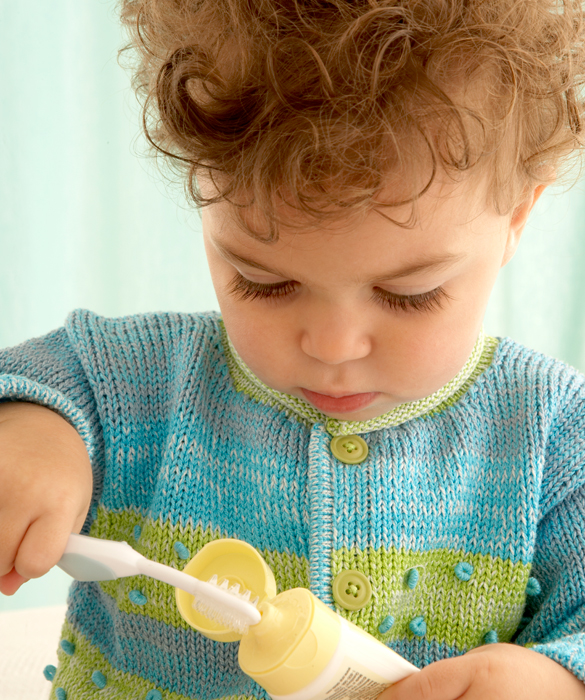
All children should visit the dentist before their first birthday, says McTigue. “This is recommended by the American Academy of Pediatrics, the American Dental Association and American Academy of Pediatric Dentistry,” he points out. “Early childhood tooth decay is a huge problem because it’s very hard to treat. You have to put them to sleep, etc., so the best thing is prevention.”
Turn Your Dentist into an Authority
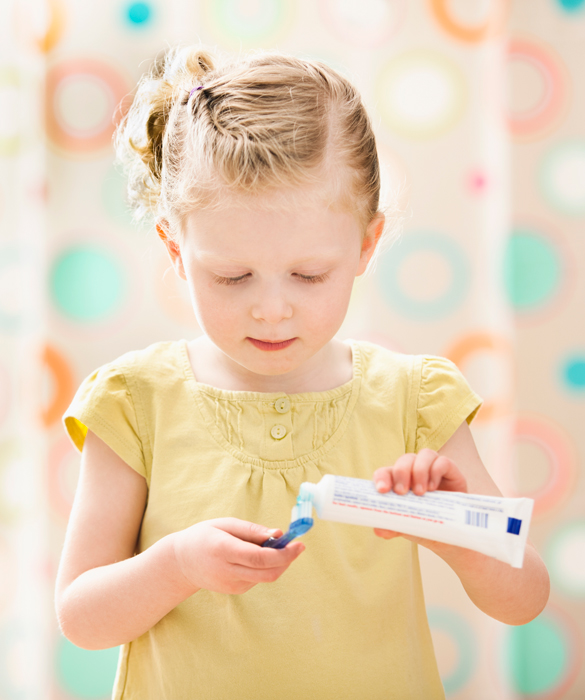
Sometimes kids will take the word of a professional more than “just” mom. So at your next appointment, ask your dentist to encourage kids to brush and explain the benefits of taking care of their teeth.
MORE: The ABCs of Braces
Don't Worry About Flossing ... Until 8 Years
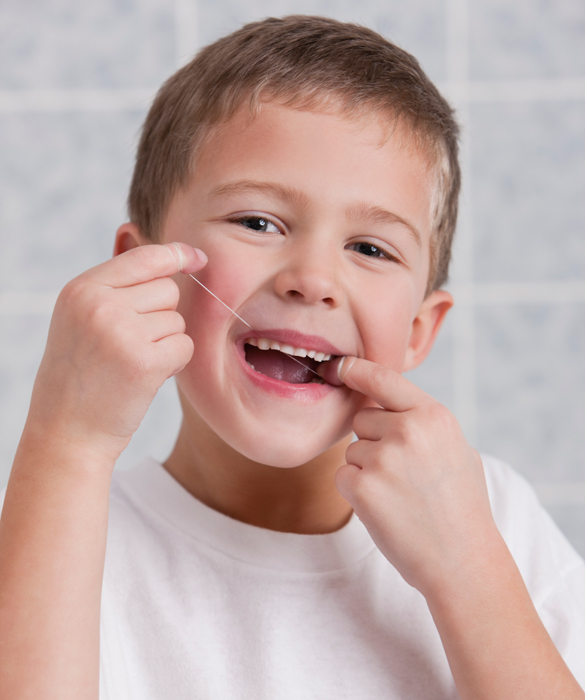
“Flossing is a really difficult thing,” McTigue says. “You’re taking a sharp piece of thread and putting it between teeth. It can cause damage to gums of kids if you do it too early. So I don’t press flossing too early unless parents are helping. At age 8, kids start to develop manipulative skills [that allow them to start flossing], and even then it has to be monitored. The more important thing is brushing than flossing.”







